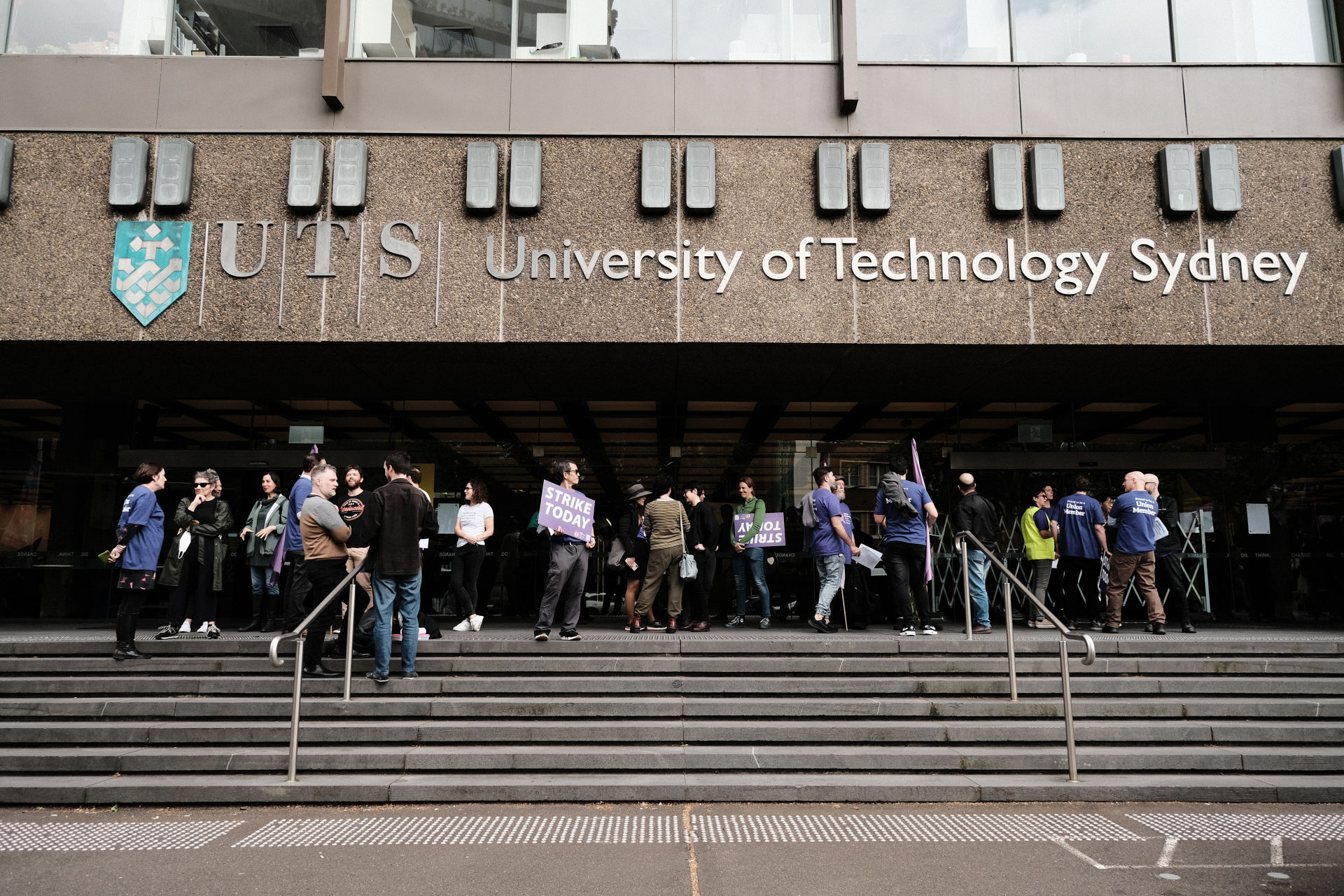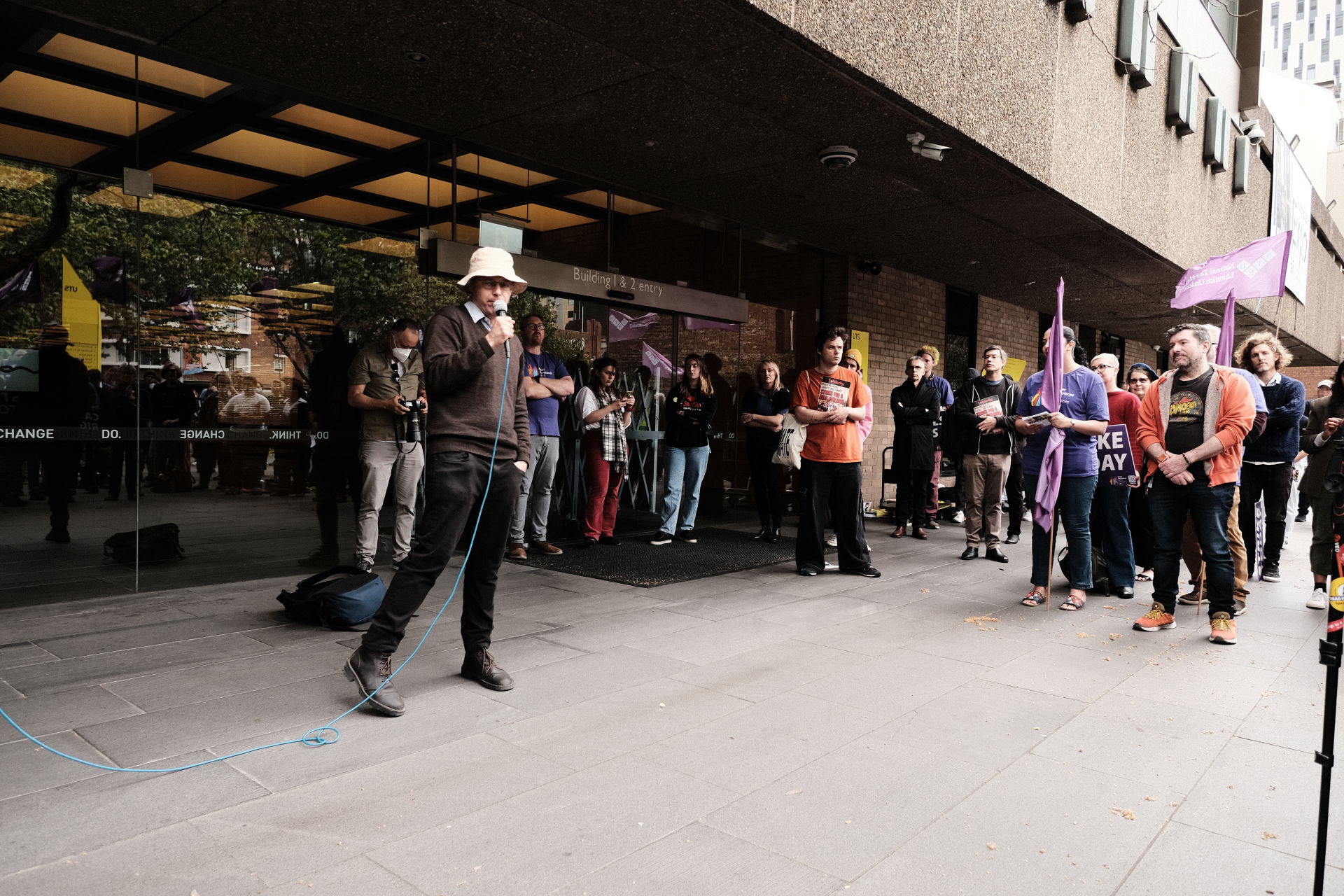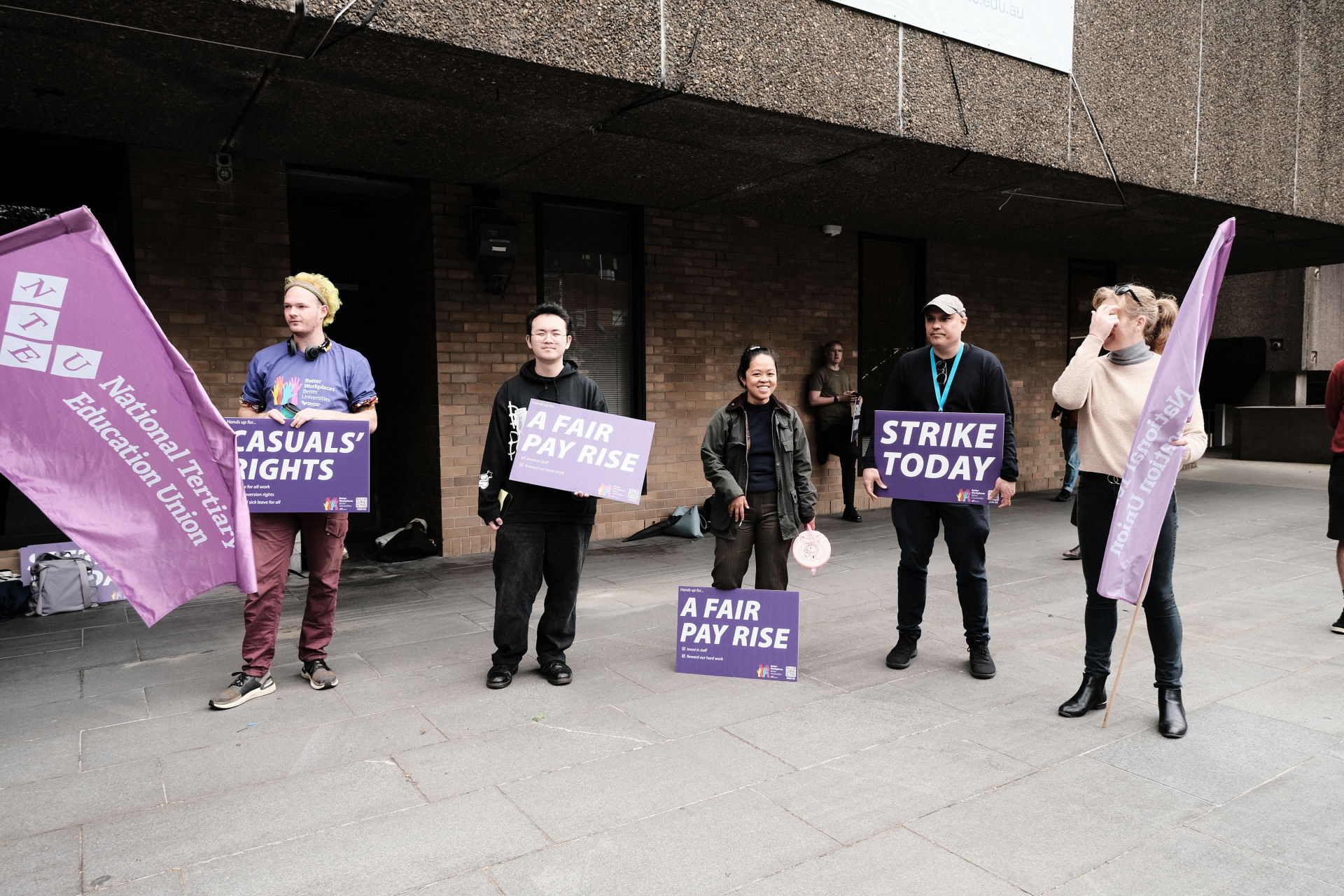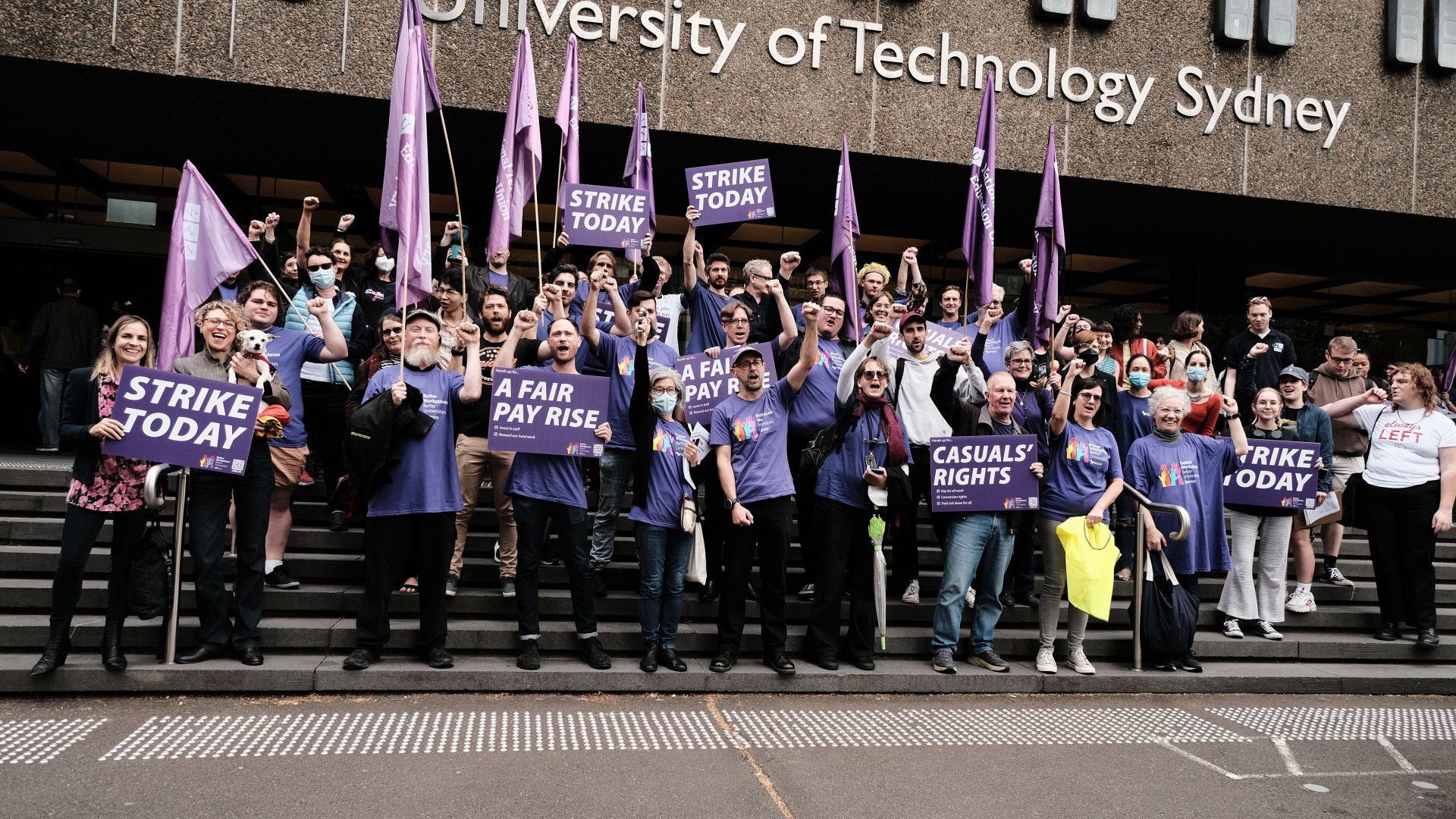Images provided by Jacqueline Adams
On Wednesday, 21 September, staff members of the UTS branch of the National Tertiary Education Union (NTEU) stopped work for two hours from 9 – 11 a.m. The union’s main demands were salary increases to account for the rising rate of inflation, an end to casualisation through more stable employment contracts, and protection against excessive overtime to maintain fair workloads.The work stoppage on Wednesday was the first action of the NTEU’s campaign at UTS. It happened off the back of the USyd branch’s fourth strike of the year, where students showed up in solidarity with their teachers to form picket lines along all the university’s entrances.

A crowd grew steadily at the doors of the UTS Tower building on Wednesday morning. Security and police had blocked off all but one sliding door, inadvertently aiding the maintenance of the strike. A wave of purple NTEU banners and signs could be seen from Broadway.
There was a remarkable show of cross-campus solidarity, with activists from both UNSW and USyd standing with UTS staff.
Some USyd attendees involved in the SRC elections had even temporarily ceased campaigning on Eastern Avenue to come and support the action.
NSW NTEU Division Secretary Damien Cahill praised the efforts of staff and students at the rally and noted its high visibility. He spoke about the campaign's demands and the importance of students understanding their shared interests with staff.
“We’re on strike because UTS is a public institution […] but is being run as if it is a profit-making corporation. For the last 20 years, UTS has loaded up on insecure employment. 70% of all staff here are on insecure contracts.”
He also criticised UTS management’s COVID response for its deep hypocrisies, stating that “management here cried poor and then turned around and sacked hundreds of staff, and had the gall to announce a $122M surplus and a massive real wage cut.”

Demelza Marlin, NTEU campaign committee member and Wiradjuri descendent, spoke on the demand for an enforceable Aboriginal and Torres Strait Islander Employment rate in the Enterprise Agreement.
“Across the sector, our universities make big claims: they want to be culturally safe, they want to honour First Nations peoples’ knowledge and voices, and increase Aboriginal and Torres Strait Islander employment. Year after year they fail to meet really basic targets. We want a 3.4% [Aboriginal employment rate] and we want it in our enterprise agreement. A policy is not enough.”
University of Sydney branch president Nick Riemer affirmed the power of cross-campus solidarity and called for more militant action in the future.
“If it becomes necessary, which is probably will, the next time you come out on action, you won’t just be out for two hours. I look forward to joining you in pickets outside UTS and really bringing this place to a grinding halt.”
Finally, Maritime Union of Australia member Erima Dall related the strike to pressures felt across the public sector in the wake of the COVID-19 pandemic, rising inflation rates, and the climate crisis,
“It’s part of a mood we can feel building in Sydney where we’ve had nurses, childcare workers, teachers, train drivers, and transport workers all striking […] After lockdown everyone was waiting to return to how things were before, but that period exposed just how broken the system is. We’ve seen how quickly they’ll call us heroes one day and dispose of us the next.”
Other speakers at the event included Greens Deputy Leader Senator Mehreen Faruqi and UTS Student and Education Action Group organiser Lucia Thornton.

The speeches instilled a deep sense of camaraderie and clearly articulated union action as the sole pathway to change at UTS, as well as in the general tertiary education sector.
Exploitation of staff and students remains rife in our universities. Though it may appear to students that there is little we can do beyond relaying our grievances in the text box of a survey at the end of the year, it is imperative that we remain aware of and inspired by the courage of those at the forefront of the struggle against corporate university policies.
The recent actions we have seen at UTS, USyd, and UNSW have demonstrated that complacency to neoliberalism is not the only option available to us.
It is within our collective power to better both our present circumstances and those of future UTS students, so long as we fight together to make UTS a fair place to learn and work.
To get involved with further action at UTS, get in touch with the UTS Education Action Group and stay up to date with the NTEU’s plans for further action.


 -
-